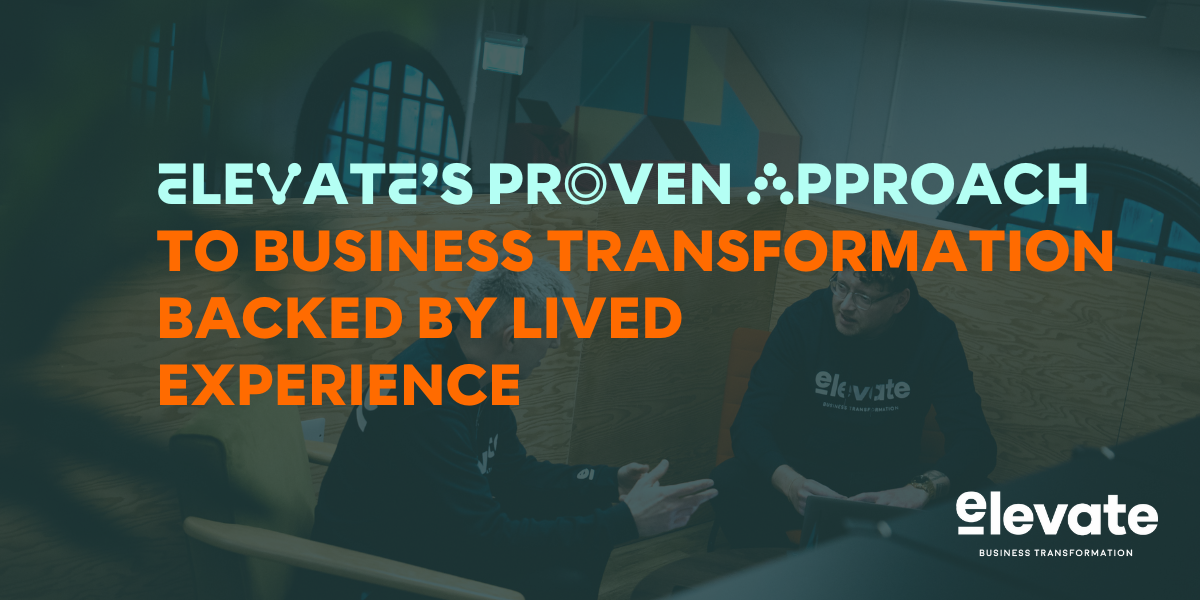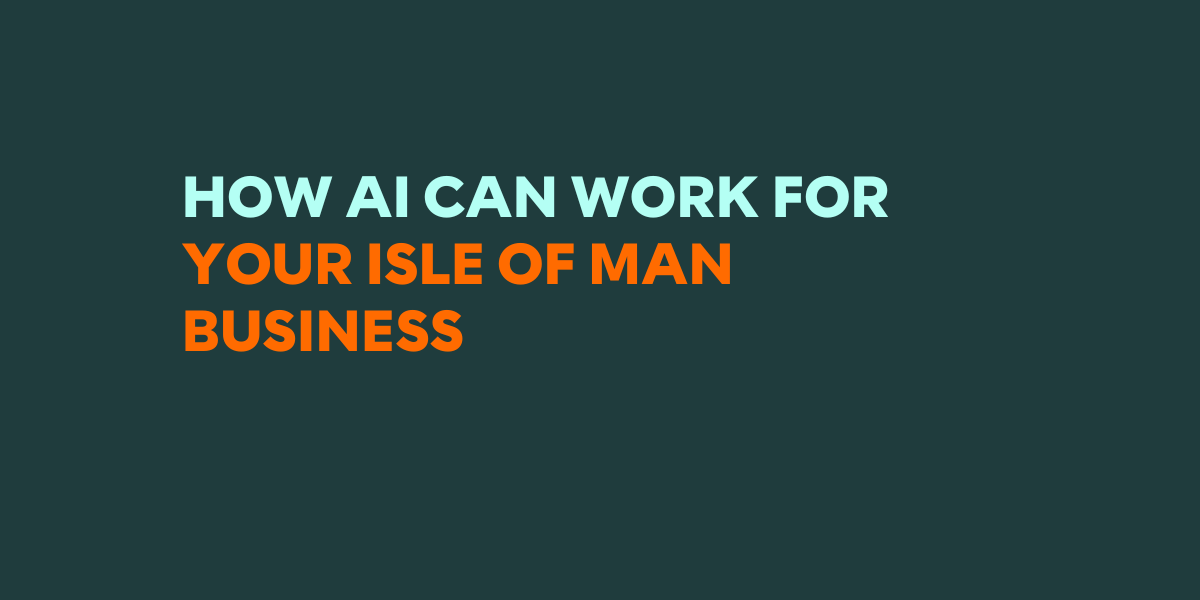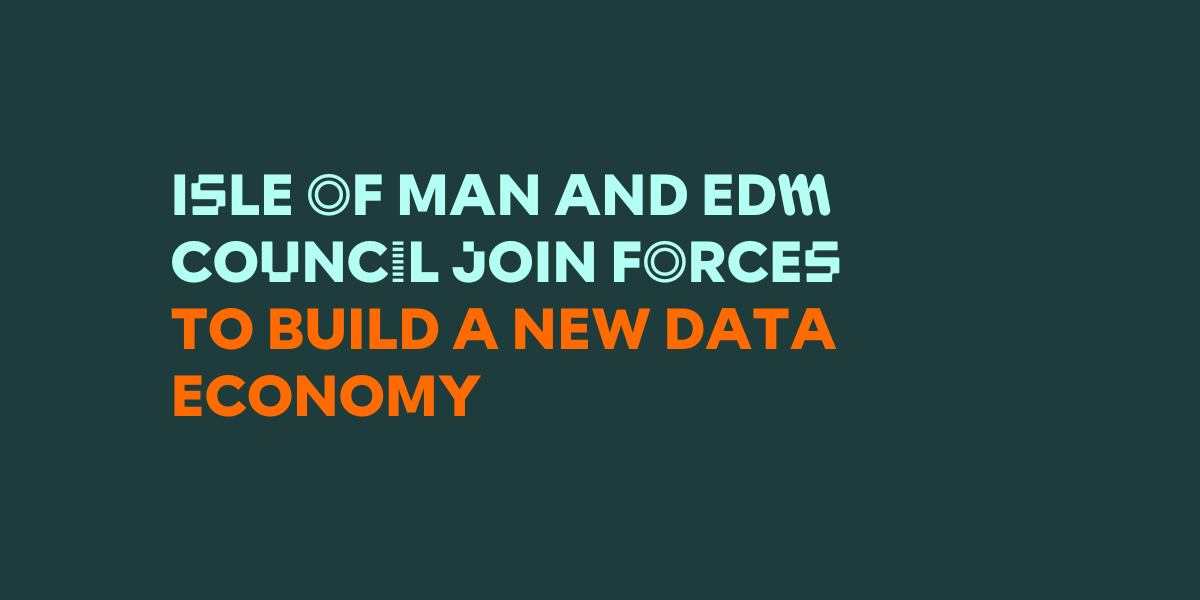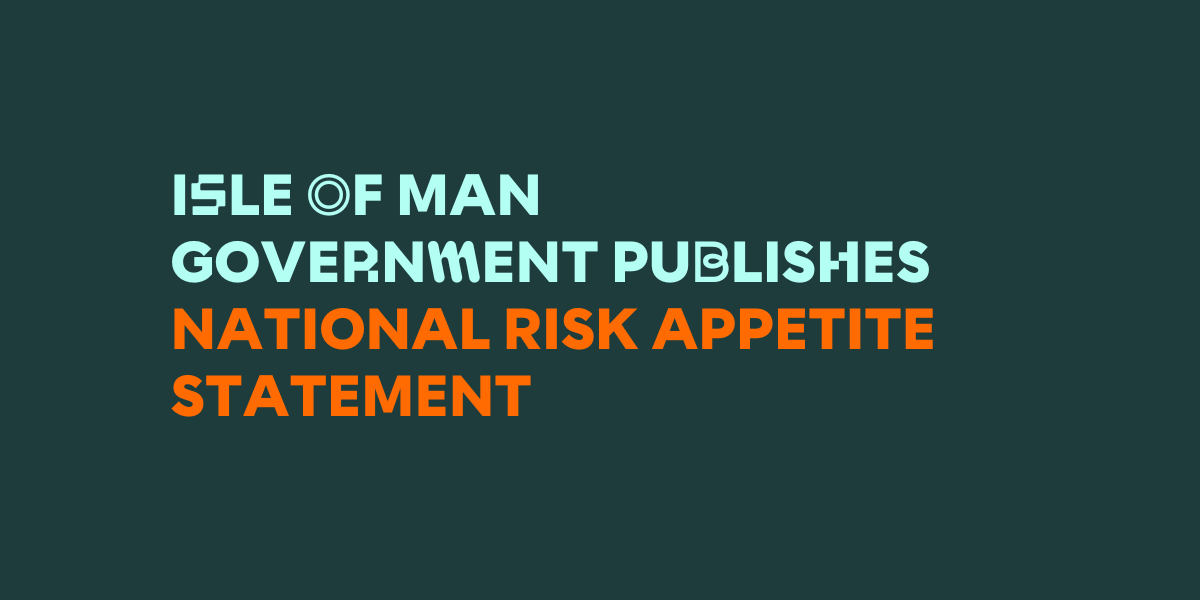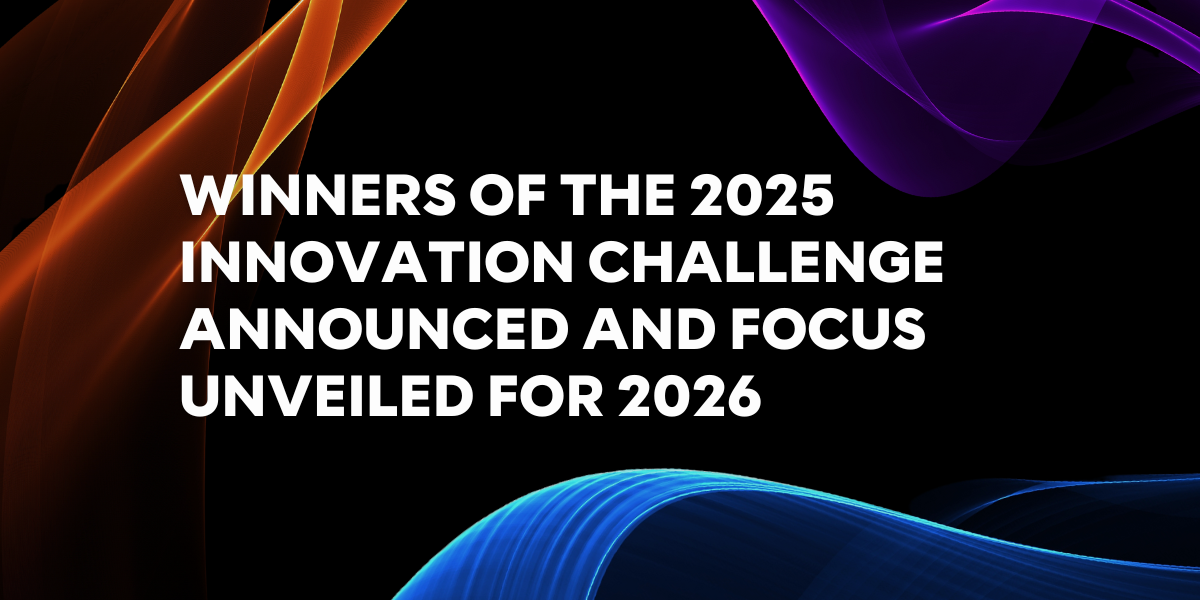THE FINTECH INNOVATION CHALLENGE - THE JOURNEY SO FAR?
21 February 2023

Why is the FinTech Innovation Challenge a Challenge?
In support of the Isle of Man Economic Strategy, one of the elements that we are seeking to advance is FinTech. This is because the expertise it is built from, exists in strong existing sectors in Finance and Digital (‘Tech‘) on the Isle of Man, giving us the raw materials to build with.
First, you have to build the foundations of a proposition that can be easily recognised, and you have to open up the stall on which to place that proposition. To do this it is wise to take some tentative steps to make sure you understand the market and the market understands you. One of the tools that we have decided to use in this journey is that of a FinTech Innovation Challenge, or competition, and we initiated one such challenge in December last year for which participant applications close at the end of February, taking 17 finalists to a competition conclusion at the Finale in June.
This has taken a lot of design and organisation, and we felt it would be interesting to give you some insight into how this was achieved, and outline the steps and considerations that have been taken into account to get to the point where we are today.
What is an Innovation Challenge?
Innovation challenges are a tried and tested way of stimulating activity in targeted markets/industries by encouraging new participants to solve predefined problems. An Innovation Challenge, is a compelling way of generating innovative ideas. Participants are asked to generate ideas for creating new or improving products, processes, services, or customer experience based on challenge statements.
In our case, we are focussing on challenges that currently exist across the widest spectrum of the business community but have a particular regulatory significance in the Financial Services Sector. Using this as a foundation block can help start the development of a FinTech Ecosystem that is specifically applicable to localised use, and start a dialogue in this area that will develop into a wider FinTech strategy for the Island.
Any challenge of this type can have several financial and non-financial benefits. A challenge around a particular problem can create a usable solution for local financial organisations. Another benefit can be the encouragement of start-ups in the areas defined, inviting global FinTech businesses to come to the Isle of Man to scale their concept in this area through regulatory guidance and mentoring. This same benefit can also apply to local businesses or consortiums providing solutions.
The concept of creating a FinTech Challenge was aired first at the Digital Isle conference in the autumn of 2021 and then in the spring of 2022 we embarked on a design phase in conjunction with Deloitte, who have wide-ranging experience in creating and running such challenges in other areas of the world.
Early on in our thinking process, we determined we wanted the solutions provided to be available to the widest section of our business community as possible. This means that we were not going to build in any design caveats on the stage the company was at in its development, nor where the company was located. We would also see benefit in any applicant that took part in that this showed an interest in the Isle of Man that we might be able to leverage in the future.
For this particular Challenge, the vision and objectives were defined around the curation and development of a FinTech component to our economy, built on existing attributes that we already have in place.
Vision of the Challenge
A showcase of the Island’s strengths for supporting new growth and new opportunities in the FinTech sector, producing sustainable and innovative technological developments to solve existing challenges for Financial Institutions
Having determined our vision, we needed to define what a good challenge looked like, and how we could make this relevant to the Isle of Man. To do this, we went through a substantive scoping and design exercise, assisted by Deloitte, who brought experience of running Challenges and Fintech Clusters in other locations around the world. With activities ranging from workshops, road-testing sessions and surveys, we engaged key stakeholders across the Isle of Man business community and gathered their opinion throughout the development of the details of the Challenge.
The first stage was to take the vision and determine the outcomes we wanted to achieve. These would then be ’road tested‘ using our interaction with the business community. These were defined as:
- Innovative solutions to industry challenges: participants have the opportunity to develop and test their technology-based solutions and take the proposition to market to address industry challenge.
- Cross learning for the future: Successful Delivery of the Challenge will provide valuable experience for upcoming challenges and sets expectation of what success looks like for businesses looking to operate on the Island.
- Establishing a FinTech friendly jurisdiction: Through inviting businesses to develop creative technology-based solutions to a current challenge in the financial services industry and assisting the solution to scale through tangible support, the challenge will signal Isle of Man as a supportive jurisdiction that embraces innovation.
- Developing the local FinTech ecosystem: Mobilising financial services institutions, FinTechs, service providers and relevant SMEs, a FinTech Innovation Challenge will facilitate development of and communication within the ecosystem, cultivating favourable environment for FinTech companies seeking their next stop.
From this foundational proposition we then had to build out the project management aspects by splitting down the Challenge into the key components that we could work through in conjunction with our business stakeholders and also taking into account the best practise brought to us by Deloitte. These fell into the categories of:
- Challenge structure outline: Recommended multi-phased approach to deliver a successful Challenge
- Challenge topic: Shortlisted areas of focus within Financial Services where FinTech can help to provide new solutions
- Challenge stakeholders: Key ecosystem roles, including Challenge Judge, Supporters, Challenge Participants and Challenge Audience
- Challenge key outcomes: Tangible benefits expected from this Challenge for the Island
- Marketing & infrastructure: Attracting a broad range of applicants to lay the foundations for a successful Challenge
- Funding requirements: High-level estimated costs of execution
The Challenge is a vehicle to create a showcase of the Isle of Man’s strengths for supporting new growth and new opportunities but applying that in a new combination in the FinTech sector. By encouraging the production of sustainable and innovative technological developments to solve existing challenges across our various business sectors, we also sought to find a way to create value for the businesses already existing in our community.
Engagement
To ensure that we aligned with the business community, who would be the main potential beneficiaries of challenge outcomes, our engagement was on a number of levels at workshops and using surveys.
We aimed to gather a wide range of perspectives on topics ranging from the ecosystem’s desire for technology adoption, current and future ambitions to engage with technology vendors and key factors when incorporating a third party’s technology. Among the responses, we saw:
- 89% of the organisations have seen increased emphasis on technology, with Digital Identity and Tech for Enterprise being the two areas of focus.
- Cyber-security and regulatory and customer demands are the primary challenges faced by the organisations, and an even split of preference between vendor and in-house solutions.
- 67% of the responses indicated likelihood to invest in FinTech in the next year.
In addition, we also aimed to understand stakeholders’ willingness to get involved in the Challenge. Among the responses we received, we have seen:
- 93% of the participants would like to stay involved
The insights we gained from this gave us some confidence to move forward with the challenge itself and also with the principles of design.
Outline structure
With some general inputs from the business community we were able to start applying that knowledge and thinking to the key components, and the first of these was the structure of the Challenge itself. This led us to a structure that defined its workflow as:
- Application & shortlisting: Formal launch of the challenge, inviting global FinTechs to take part in one of 3 challenge statements – open to scaling FinTech businesses with a demonstrable proof of concept. Selection process to narrow list down to 2-3 FinTechs per challenge statement.
- Contextualisation & support: Conduct a contextualisation program with local business mentor to accelerate the proposition/pitch of the shortlisted FinTechs selected by the judge's panel – this should include engagement with IOMFSA and other local supporting bodies such as Digital Isle of Man, Finance Isle of Man and funding providers.
- Finale: Showcasing the potential of FinTech on the Isle of Man as well as the final pitches from finalists to the financial institutions, where the winners are selected.
- Post-event support: Define a clear post-event support model – supporting FinTech winners to use the Challenge as a springboard to scale, enabling commercial agreements and future collaboration.
Challenge topics
The next component to be considered was the definition of the challenge statements. After consideration of the entire taxonomy of FinTech we started with a number of items that fall largely into the RegTech category. It is a common misconception that this is Tech used by the Regulators. Products and services in this area are more generally around helping businesses to deal with regulatory compliance and deal with the overhead that this creates. Efficiency and coordination in these areas has the widest business application so fit in with our aim to derive benefit for the greatest number of businesses, not just those in the Financial and Regulated Sectors. We started off with seven potential areas that we felt could be considered for the challenge statements:
- e-KYC & digital identity: A common shared platform on which KYC can be registered by regulated participants and used by other regulated entities.
- Dynamic Compliance: This can be applied at multiple levels: the more specific is measuring regulatory compliance; the more generic brings in Ethics & Compliance, which runs across all businesses, not just the regulated ones.
- Blockchain forensics: The ability to track the change of ownership of tokens, most often to establish ‘source of funds’.
- Risk analytics: This is pertinent to regulated entities that need to demonstrate the visibility of risk, the boundaries and contingencies that have been stress tested and a continuous monitoring program to assess current position. A unified way of making this visible to the regulators would save a lot of time and effort
- Fraud prevention & risk management: An extension on Risk Analytics looking specifically at the fraud risks by analysing transactions and looking at probabilities to alert to a heightened risk
- Financial management & business intelligence: The packaging together of Risk Analysis and Fraud Prevention with the addition of internal financial reporting as well as the reporting that is required for the regulator
- Crowdfunding: A crowdfunding platform linked to digital shares and corporate registrations and submissions
After much consultation and consideration these were reduced down to three core challenges that were much simpler in nature, Digital Identity Management, e-KYC and Compliance & Transaction Monitoring. We then added one more general challenge (the ’wildcard‘) directly as a result of the feedback from the business community within our workshop sessions. During the application process it was found that there were many similarities between the first two challenges and as a result they were merged. The final three Challenge Statements are:
Challenge Statement #1 - DIGITAL IDENTITY MANAGEMENT & E-KYC
The management of identities follows a sequence of attributes and complexity as you move from the existing analogue to the digital environment. KYC (Know Your Customer) is a key procedure in financial services on boarding, where a customer’s identity will be checked and verified. We would like to see how a Digital ID/e-KYC solution could be developed to reduce costs, automate processes and ensure data security, whilst complying with AML (Anti-Money Laundering) and KYC regulations.
The solution should consider:
A) Digital safe storage of existing documents (passports etc.) and attributes (DoB, Address etc.) uploaded by the individual/corporation
B) Independent validation and assurance of the accuracy of this information, including things like photo and real life comparisons.
C) A secure method for the Digital ID/KYC owner to share this information electronically, with parties of their choice, as a pre-packaged bundle
D) A full, new Digital Identity “Card” either issued in the private sector under agreed standards or a new Government issued form of ID
For this challenge we would not expect deliverables to be able to go beyond C, but that should not limit presenting future proposals to build to D.
Risk assessment, profiling and reporting should also be considered.
Challenge Statement #2 - Compliance & Transaction Monitoring
Fraud Prevention & Risk Management are critical to the success Compliance within financial institutions, and technology has the potential to streamline and transform regulatory activities for organisations. With sanction screening being a highly manual process for many financial services providers, how might we leverage the power of technology, machine learning and AI for sanction screening in payments and transactions, so that manual touchpoints can be reduced to a minimum level and identify sanctioned entities and transactions effectively? It is also worth considering how financial intelligence may be shared between parties to enhance the accuracy of AI without compromising privacy.
Challenge Statement #3 - Wildcard
Challenge Statement 4 is designed to be a wildcard, and we encourage all eligible FinTechs to define a problem statement that they believe exists in the Isle of Man and propose a technology-based solution to this problem. This can relate to any aspect of the Financial Services Industry.
Stakeholders
Although a lot of work had already been put into the engagement with the business community and they were the main beneficiary stakeholders, there were other relationships that we needed to define and involve, as the Challenge progressed. In particular, these were the roles that would be involved in the Challenge itself. Again, under consultation these were defined as:
- Challenge judges: will form a panel and will be involved in the selection stage and the Finale to assess applying FinTechs and evaluate the finalists’ presentations and pitches.
- Challenge supporters: are expected to be involved during the Contextualisation stage to provide access to space, mentorship and potential financial support. During the program, mentors will share industry insight, experience and provide mentorship to program participants.
- Challenge participants: will be existing companies and start-ups selected from initial applicants who submitted innovative proof of concepts and will be actively involved in all stages if criteria are met.
- Challenge audience: The Challenge audience will be involved during the Finale and post-event. As the solutions materialise, the Challenge audience could become potential customers/investors of the end product.
Once the challenge components had been designed and agreed, we went through a procurement process to acquire a delivery partner, a contract that was awarded to Deloitte. This process took a number of months to complete and hence why the actual delivery of the project started in November 2022.
Additional benefits
The Challenge delivery framework can be reused to support the running of future challenges and reduce future challenge costs whilst enhancing the profile and eminence of the Isle of Man as a FinTech jurisdiction. In addition, the following leverage opportunities exist:
- To attract foreign investment to the Island, through international applications and interest
- for the winning applicant(s) to take their proposition to market, with the potential use of a regulatory sandbox
- Road-testing of the IOM regulatory sandbox and Innovation Hub – using the winning applicant(s) to test their ideas in a live environment, providing a controlled research and development approach, while reducing risks for consumers
- The development of creative, sustainable, and technology-based solution(s)which can be applied to industry across the Island
- Delivery of a successful Challenge can be used as a springboard to kick-start several follow-on initiatives, driving further economic benefits
Challenge up and running
The application process was opened in December 2022 and is due to close on 28th February this year, at which point we will go through the selection process to establish 17 finalists. These finalists will work towards the Finale in June that will ultimately establish the winners. Below you will find the complete timeline of the Innovation Challenge for 2023.
I hope you have found this insightful. If you would like to assist in being mentors to the finalists, or simply observing the showcase of solutions that will be presented at the public Finale (Demo Day) in June, please register your interest at Fintech Challenge (digitalisleofman.com). We believe that this is a unique opportunity to put our ’Isle of Open Minds‘ on the global map.
